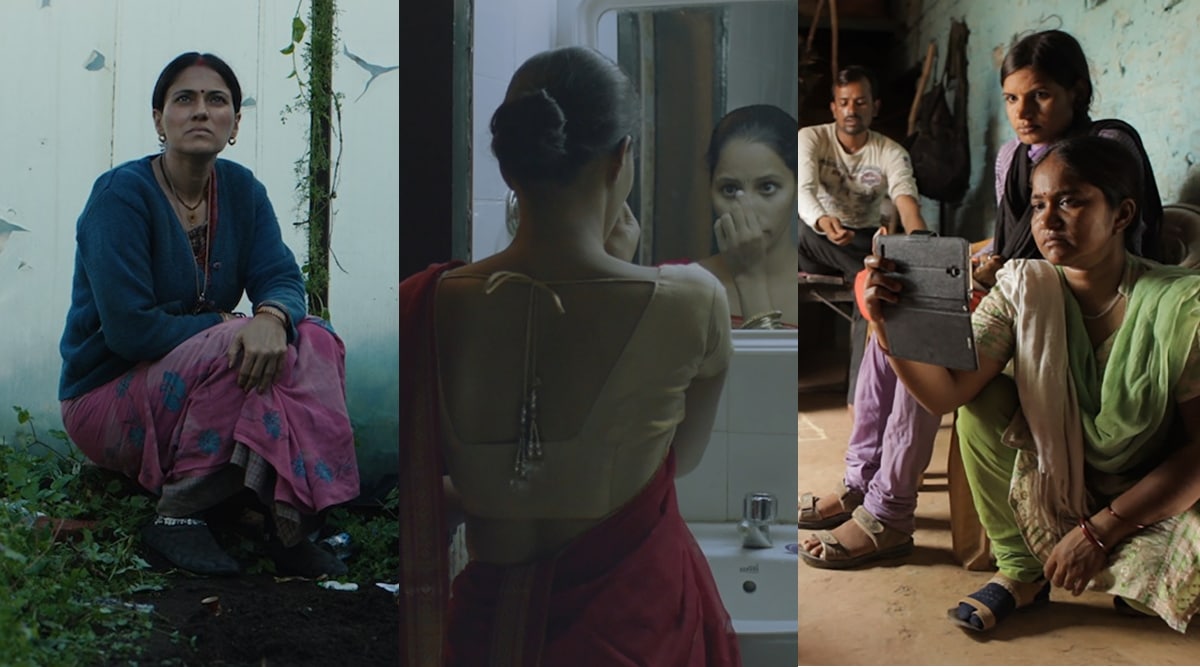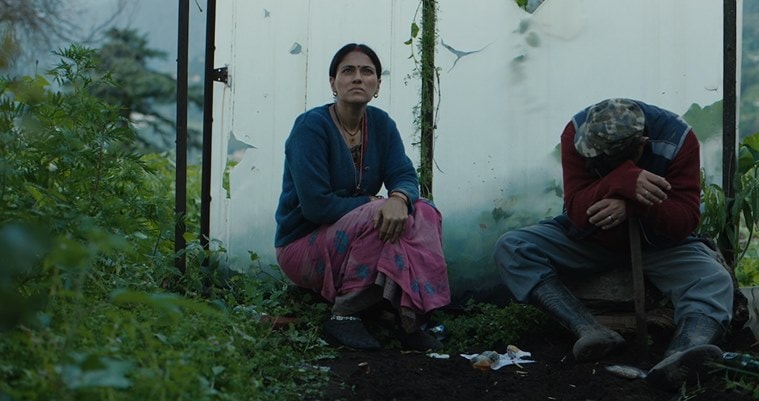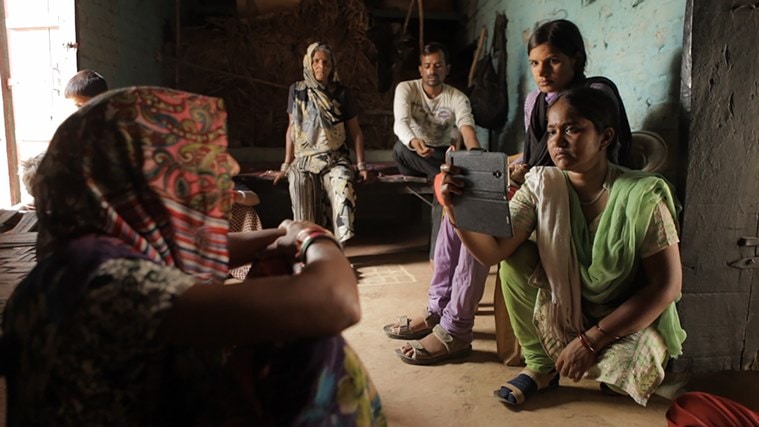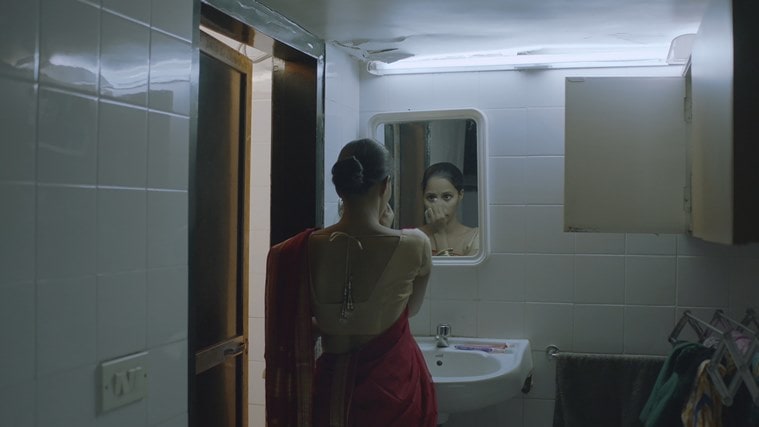The personal is political in Fire in the Mountains, Writing with Fire, and an Indo-US production, LATA. These are among 72 films at the festival, to be held late January
Put ‘fire’ in the title and chances are the film will be shown at Sundance Film Festival. In 2012, Indian-Canadian Dylan Mohan Gray’s Fire in the Blood was shown there. Jokes aside, this year, too, the fire-titled Indian shortlists are hoping to add to the celebration of diversity at the world stage. From Peepli (Live), to The Lunchbox and Liar’s Dice, India has been taking unique stories to the hallowed festival. From January this year, when it opened with pop singer Taylor Swift’s documentary Miss Americana (now on Netflix) to the forthcoming hybrid 2021 edition (January 28-February 3), a lot has changed. The pandemic gripped the world, and America’s most prominent film festival got a new head.
Tabitha Jackson is the first woman and first person of colour to head the four-decade-old Sundance festival. She comes into her new role after a six-year-stint steering the Sundance Institute’s documentary film programme. She’s trained the festival’s lens on independent cinema, bringing in diverse themes, including race and gender, as the margins and marginalised take centre stage. The pared-down, shorter, week-long edition (instead of 10 days) will showcase 72 films, down from the usual 120. There will be a virtual hangout space for viewers to chat with one another, and more. And ticket/pass sales will start from January 7.
“Despite the challenges this year, nothing could stop us from celebrating independent film, visionary artists, unique perspectives, and our adventurous audiences,” Jackson wrote on the festival website, “For the first time, we are bringing the festival to you, both online and in the real world across the US and beyond.”
Around half the films in the two narrative competition lists are by women filmmakers. There’s Constance Wu-starrer CODA (or Child Of Deaf Adults), and House of Cards’ actor Robin Wright’s directorial debut Land. African-American racial-issues themed Rebecca Hall’s debut, the Tessa Thompson-starrer drama Passing, and the premiere of Questlove’s (Ahmir Thompson’s) Black Woodstock music documentary, Summer of Soul (…Or, When the Revolution Could Not Be Televised).
India will send three powerful stories of and about women:
Fire in the Mountains
Writer-director Ajitpal Singh’s feature debut in Hindi, formerly titled Swizerland, is one of the 10 features in the World Cinema Dramatic Competition section. It was steeped and brewed at NFDC Screenwriters’ Lab 2018, Work-in-Progress Lab 2019, and, in June this year, part of the five projects in Film Bazaar Goes to Cannes at Marche du Film marketplace to fetch global distributors, etc.
The film, which has its world premiere on February 1-2, is inspired by a personal tragedy. Singh’s cousin died because her husband didn’t take her to the hospital “thinking she was possessed by a ghost”. It tells the story of Chandra and Dharam, who run Swizerland Homestay, towering on the only road in a small Himalayan village. While Chandra seeks medical attention for their wheelchair-bound son, her husband pockets the money for a shamanic ritual to rid Prakash of a deity’s curse. Here, Singh walks the tightrope between tradition and modernity, tensions spike when worldviews collide, and wheeling through familial terrain becomes difficult as ties start to erode.
Writing with Fire
Former Jamia Millia Islamia graduates, filmmakers Sushmit Ghosh and Rintu Thomas (the latter has been a Sundance Institute Stories of Change fellow) have been making documentaries and short films for a while now, and have received many awards, including a National Film Award in the Best Environment Film in 2012 for Timbaktu. The Sundance docu-feature entry is one among 10 in the World Cinema Documentary Competition category, to premiere on January 31-February 1. It charts the story of India’s only all-female Dalit news network Khabar Lahariya. The coming into existence, and survival, against all odds, of such an outfit in a male-dominated news landscape and amid the reality of how news about Dalits, especially Dalit women, goes unwritten in not just mainstream national media but even in regional media, said Khabar Lahariya’s chief reporter Meera at a recent gender-equity virtual youth forum NGAGE, organised by Bengaluru NGO Durga. The film trails Meera and her gang of girls to capture the outfit’s switch from print to digital, armed with smartphones and unwavering grit, dismantling notions of power and patriarchy.
LATA
Lata is a 23-year-old domestic worker who navigates her way through an upper-class home in south Mumbai. The opening and closing of doors, literally and figuratively, gives her access to contending realities which occupy these spaces, unspooling class and power dynamics.
This one is actually an India-US production. Part of Short Program 2, to screen on January 28, the eponymous short film, in Hindi, Marathi and English, aims to be a voice for India’s domestic workers. This is Los Angeles-based Indian filmmaker and producer Alisha Tejpal’s second film. It premiered at the 68th San Sebastián International Film Festival in September and is also her MFA thesis film from CalArts (The California Institute of the Arts). Tejpal has earlier assisted Konkona Sen Sharma as an assistant director on Death in the Gunj and Nandita Das with Manto.
Also, part of the festival line-up is Kevin MacDonald’s Life in a Day 2020, the second outing, after a decade, of his crowdsourced experiment, where he invited raw footage shot on one particular day, July 25, from across the world. Culled from these – 300,000 entries (trumping 80,000 from 10 years ago) from 191 countries – MacDonald and Ridley Scott stitched the 90-minute docu-feature, which will be screened on February 2. India was among the top countries to send the most submissions. Now to wait and see what India has sent.
Source: Read Full Article





